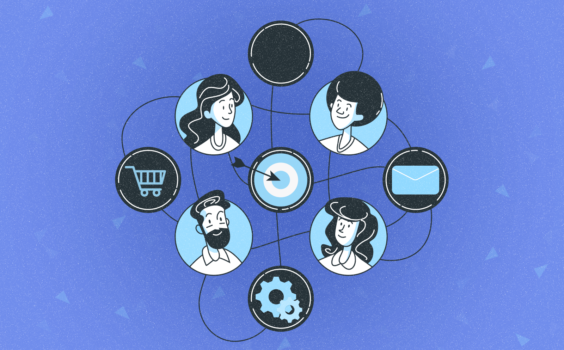The Role of Artificial Intelligence in Improving Project Management: How AI Can Help Make Projects Run Smoothly
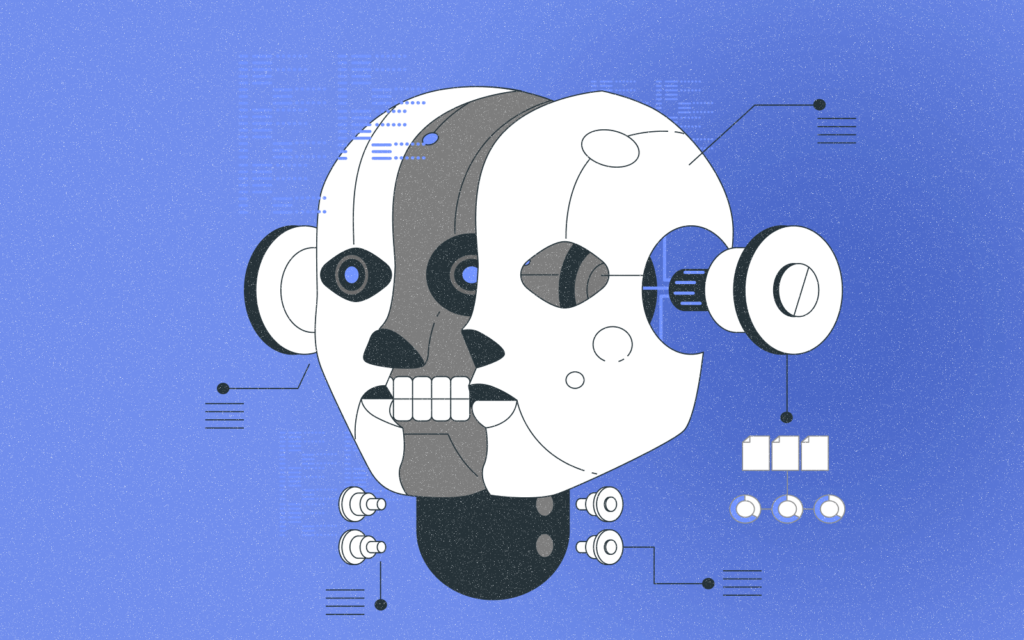
Maybe you haven’t stopped to consider this, but artificial intelligence is playing an increasingly important role in our lives. Just think about all the chatbots that have helped you solve an issue! In the business world, AI is being used to automate tasks, improve decision-making and create efficiencies, and project management is also taking advantage of its perks!
In this blog post, we’re going to explore how artificial intelligence is changing project management and the different ways AI can help make your projects run smoothly. Stay tuned!
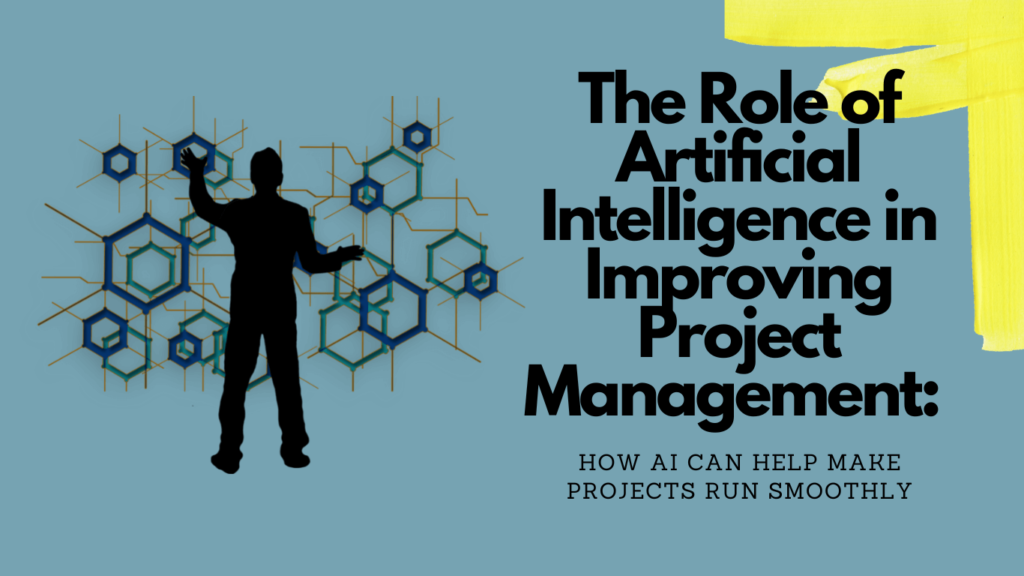
Nowadays, many people are familiar with the term artificial intelligence (AI), but most may not know exactly what it means. Let’s break down the concept! According to Minsk, 1958 intelligence usually means “the ability to solve hard problems” therefore, if we add the artificial attribute to it, we could safely conclude this hard problem solving is not performed by organic human beings, to some extent, of course.
Russel and Norvig, 2016 defined the term AI to “describe computer systems that mimic cognitive functions generally associated with human attributes such as learning, speech, problem-solving, visual perception, natural language understanding, and decision-making.” And, we are taking the liberty of adding that these systems perform these tasks either semi/fully autonomously.

Artificial intelligence allows computers to learn and make decisions on their own
Artificial Intelligence Applications
Artificial intelligence (AI) is playing a major role in the fourth industrial revolution and we are seeing a lot of evolution across several industries, with project management being one of them.
- Healthcare: AI is helping doctors and nurses provide better patient care by automating simple tasks, such as scheduling appointments and managing medical records.
- Education: AI is being used to personalize learning experiences for students and to help educators identify areas where a student may need additional support.
- Engineering: AI is being used to design better products and to improve the efficiency of manufacturing processes.
- Finance: AI is being used to automate financial tasks, such as fraud detection and investment management.
- Business: AI is being used to improve customer service, sales, and marketing efforts.
- Government: AI is being used to improve the efficiency of government services and to help decision-makers make better-informed decisions.

Thus, we are here to discuss how AI can help in project management. So, how exactly can AI help make projects run smoothly? Let’s take a look!
Get more out of your business
Get the best employee engagement content every week via mailing list
AI Can Help Make Projects Run Smoothly
Project management is all about delivering results on time, within budget, and to the required quality standards. But as any project manager knows, this is easier said than done! There are so many moving parts to a project, and it can be difficult to keep track of everything. This is where artificial intelligence comes in!
In fact, according to a recent PMI “Pulse of the Profession®” poll, over 80% of respondents feel that AI is heavily influencing their organizations. Project managers anticipate the proportion of projects they deal with utilizing AI to rise from 23% to 37% over the next three years.
In the field of project management, AI is being used to automate tasks, improve decision-making and create efficiencies. Let’s explore some of the ways AI is being used in project management:
Scheduling and Planning
Project management is a complex process that requires careful coordination of resources and activities. In the past, this process was largely reliant on human experience and intuition. However, artificial intelligence is now being used to develop more sophisticated scheduling and planning tools.
These tools are designed to consider a wider range of factors and identify potential problems more quickly. As a result, they can help to improve the efficiency of project management and reduce the risk of delays or cost overruns.
Artificial intelligence is also being used to create virtual assistants that can provide support with tasks such as generating reports or monitoring progress.
Task Automation
Artificial Intelligence (AI) is increasingly being used to automate tasks in a wide variety of industries, including project management. While AI can’t yet replace human managers entirely, it can be used to take on many of the routine tasks associated with managing a project, freeing up time for managers to focus on more strategic tasks.
For example, AI can be used to automatically track and monitor project progress, identify potential risks and issues, and recommend solutions. AI can also be used to generate reports and presentations, as well as to create and manage project schedules.
In addition, AI can help managers to communicate with team members and stakeholders more effectively by providing them with real-time updates on project progress.
Efficiencies and Productivity
Evidently, when you get the opportunity to automate these tasks you boost productivity. Inevitably, there will be fewer human errors and omissions, therefore you save up time!
In addition, with AI-powered tools, you can have all the information you need in one place. This is because these tools are designed to integrate with other software systems and databases. For example, you can use an AI-powered project management tool to automatically populate your project plan with data from your CRM system.
This not only saves you time but also helps to improve the accuracy of your project data.
AI-Driven Decision-Making
With the ability to make decisions based on data, Artificial Intelligence has the potential to improve the accuracy and efficiency of project management. For example, Artificial Intelligence can be used to automatically generate project schedules based on past data.
This can help to reduce the amount of time needed to plan a project, as well as the chances of errors. In addition, Artificial Intelligence can be used to monitor projects and provide early warnings of potential problems, and predict how a project is likely to unfold.

By harnessing the power of big data, AI can provide insights that would otherwise be hidden in the noise of large data sets. Through pattern recognition and machine learning, AI can help businesses to identify trends and make predictions about future behavior.
Project Cost Estimation
Budgeting and cost estimation are critical parts of project management, but it can be difficult to know where to start. This is where AI can help!
AI can be used to automatically generate cost estimates for projects based on past data. This information can help project managers to make more informed decisions about how to allocate resources.
These systems can be used to develop and refine cost estimating models. Moreover, artificial intelligence can be used to create training datasets for cost estimation exercises. Finally, artificial intelligence can also be used to assess the accuracy of cost estimates, improving the accuracy of their estimates saving time and money.
Resource Allocation
By analyzing past projects, artificial intelligence can identify patterns and relationships that would otherwise be invisible to human beings. This information can then be used to make predictions about future projects and to allocate resources accordingly.
In recent years, artificial intelligence has become increasingly sophisticated and is now able to take into account a wide range of factors when making predictions.
As a result, it is often able to produce more accurate results than human beings. This can lead to better decisions about resource allocation, and ultimately to more successful projects.
Risk Management
Risk management is another area where AI can be used to improve project management. AI can help to identify and assess risks, as well as to develop plans for mitigating them.
For example, AI can be used to automatically generate risk profiles for projects based on past data. This information can help project managers to make more informed decisions about which risks are most likely to impact their projects.

In addition, AI can be used to monitor projects and identify potential risks in real-time. This information can help project managers to take proactive measures to mitigate risks before they have a chance to impact the project.
Finally, AI can also be used to generate reports on risk management activities. These reports can help to improve the transparency and accountability of risk management processes.
Reminders
In today’s fast-paced world, it’s often difficult to keep track of all the tasks and deadlines associated with a project. This is where artificial intelligence can be a helpful tool. By setting up reminders, AI can help project managers ensure that nothing falls through the cracks.
For example, a reminder can be set for a week before a task is due, giving the project manager time to check in and make sure that the task is on track. Additionally, reminders can be set for specific milestones, such as when a deliverable is due or when a client meeting is scheduled.
By using artificial intelligence for reminders, project managers can rest assured that they will never forget an important task or deadline again.
Project Overview
As a whole, with systems like artificial intelligence, businesses can manage an ever-growing portfolio of projects with speed and accuracy. Businesses can break down barriers to communication and collaboration, getting a better grasp on their projects as a whole.
This gives them the ability to make data-driven decisions that boost efficiency and optimize results. By using artificial intelligence for project management, businesses can stay ahead of the curve and complete projects on time and within budget.
As businesses continue to look for ways to gain a competitive edge, artificial intelligence is likely to play an increasingly important role.
Artificial Intelligence in Project Management: Best Practices
Artificial intelligence (AI) is one of the most transformative technologies of our time. With its ability to learn and evolve at a rapid pace, AI has the potential to revolutionize project management by providing novel ways to tackle complex challenges and optimize processes. However, as with any new technology, several best practices should be followed to maximize its potential.
First and foremost, it’s important to remember that artificial intelligence is a tool, and like any tool, it should be used in the way that best suits the needs of the project. That being said, there are a few general best practices that can be followed when using AI for project management.
- It is important to have a clear understanding of what AI can and cannot do. This will help to ensure that AI is used effectively and efficiently and that expectations are realistic.
- It is essential to establish governance structures and guidelines for using AI within the organization. This will ensure that the technology is used ethically and responsibly, in line with the organization’s values.
- As a thumb rule, businesses should ensure that they have clear goals and objectives for their projects. Without this foundation, it will be difficult to properly utilize AI.
- Next, businesses should collect as much data as possible about their projects. This data will be used by the AI to make predictions and recommendations.
- Finally, it is crucial to invest in training for both artificial intelligence systems and human users. This will ensure that everyone involved understands how to use the technology effectively and that they can work together seamlessly.
By doing so, they can identify opportunities for improvement and ensure that their projects are running smoothly. By following these best practices, businesses can make the most of their projects and resources!
Top 5 AI Project Management Software Tools
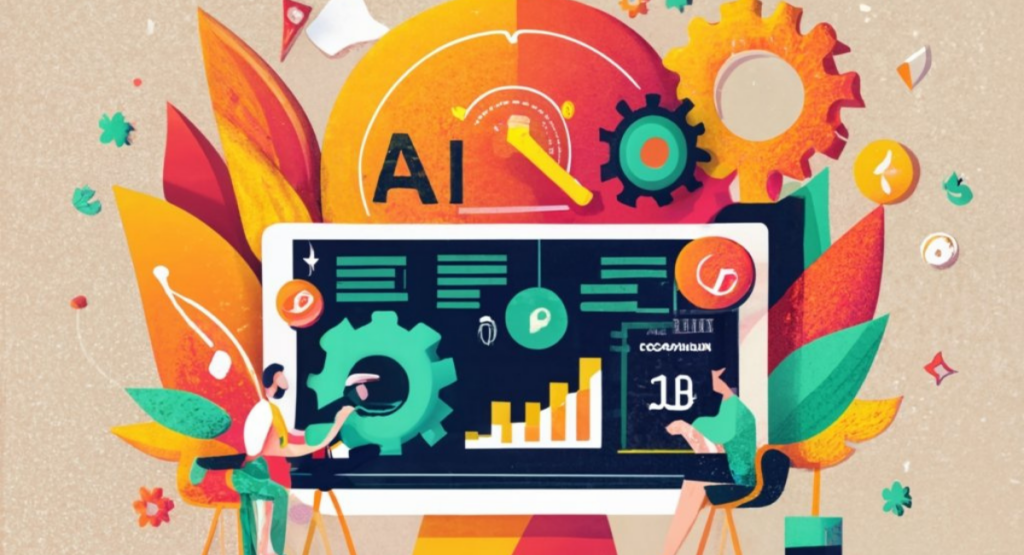
Are you struggling with managing your projects? Welcome to the future with these top 5 AI Project Management Software tools that will change the project management game.
#1. Monitask
Monitask uses AI for project management, providing comprehensive time-tracking solutions and monitoring team productivity. It automates time tracking and activity monitoring, generating detailed reports and invoices.
Monitask also offers advanced project planning features, task dependencies, and automated notifications, helping in efficient project planning and task allocation.
Furthermore, Monitask provides a security and user-friendly interface with remote and GPS tracking capabilities.
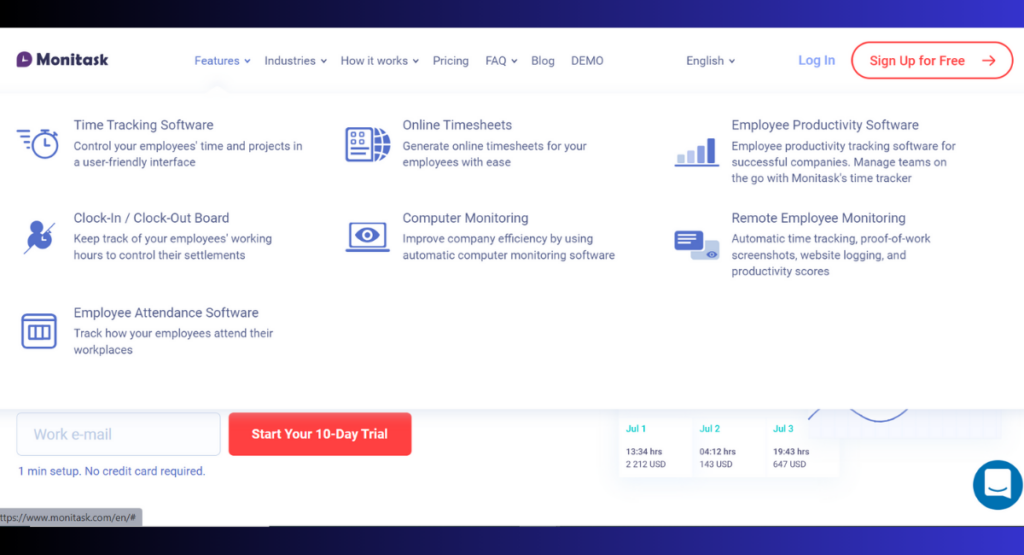
Key Benefits of AI Project Management from Monitask:
- Automates time tracking and activity monitoring
- Enables efficient project planning and task allocation
- Provides comprehensive reporting features
- Offers remote and time-tracking capabilities
- Running in multi-operating systems: Windows, MacOS, Android, IOS, Linux, Etc.
Monitask’s Pricing:
- Pricing is competitive with three plans, starting at $ 4.99 / mo.
- Offers a 10-day free trial, providing an opportunity to test the software before committing
- Different plans cater to different business sizes, making it suitable for all.
#2. Notion
Notion leverages AI to provide robust project management solutions that enhance speed and clarity.
From project initiation to completion, Notion’s AI project management tools streamline processes and increase efficiency for complex project tasks.
Notion’s comprehensive timeline view allows for a bird’s-eye view of project progress, facilitating effective resolution of dependencies and adherence to deadlines.
Detailed project tracking is enabled with tables, ensuring no detail is overlooked, while its calendar view supports effective project planning and scheduling.
Key Benefits of Notion:
- Enhances speed and clarity in project management.
- Streamlines complex project tasks and increases efficiency.
- Provides a comprehensive timeline view of project progress.
- Enables detailed project tracking with tables.
- Supports effective project planning and scheduling with a calendar view.
Notion’s pricing:
- Pricing tiers are versatile and cater to different user needs.
- The free plan offers a decent array of features for individual users.
- Premium plans add significant value, with additional features worth the investment.
- The cost for team plans seems fair, considering the scalability and comprehensive tools offered.
- Enterprise plan, while higher-priced, provides advanced security and admin features suitable for large organizations.
#3. Asana
Asana can be customized to fit specific project management needs. Asana provides a seamless and user-friendly experience for all users. It offers solutions for teams of all sizes and industries.
The Asana platform is built to empower cross-functional teams within organizations. It is designed to cater to various use cases and scenarios.
Teams can build better processes and improve efficiency with Asana. Asana allows for the management of cross-team portfolios.
The platform helps visualize the connection between work and business objectives.
Key Benefits of Asana:
- Asana helps teams execute business processes 42% faster.
- The platform enables teams to align on mission-critical goals.
- Asana connects work to goals in one record system, enhancing PMO functions.
- Asana enables resource allocation and matching to strategic work.
Asana’s Pricing:
Asana Premium at $10.99 per user/month,
Asana Business at $24.99 per user/month,
both billed annually.
- Special discounts are available for nonprofits.
- A free version is available for teams of up to 15 members.
- Team size can be changed anytime, and subscriptions should be adjusted accordingly.
#4. Wrike
Wrike’s project management platform offers AI-enhanced features to streamline project workflows, automate repetitive tasks, monitor risks, manage resources, and integrate with popular tools.
It aids in identifying potential delays and risks, gauging resource capacity, and optimizing resource allocation.
With more than 400+ integrations available, it ensures project-level work is connected and consistent.
Key Benefit of Wrike:
- Help in visualizing priorities.
- Creating smooth workflows
- Turning manual work into effective processes
- Generating project plans.
Wrike’s pricing:
- It’s flexible, with different plans catering to various business needs.
- The free plan benefits small teams, although it’s quite limited in features.
- Premium plans are pricey, but the wealth of features and integrations can justify the cost.
- The option for a custom plan provides flexibility.
#5. Basecamp
Basecamp is a project management tool offering a one-page dashboard for an overview of projects, assignments, and schedules, enhancing organization and communication.
Key Benefits of Basecamp:
- Provides a centralized platform for discussions, replacing project emails and keeping discussions on-topic.
- Basecamp excels in tracking work and responsibilities, increasing accountability with its Hill Charts feature.
- Provides an organized space for file management, supporting physical and cloud files and integrating with services like Figma and Dropbox.
- Features real-time group chat and Direct Messages (Pings) for quick discussions.
Basecamp’s Pricing:
- Offers a competitive pricing structure with its $15/user per month plan
- The free trial option allows potential customers to test the service.
- The Pro Unlimited plan at $299/month provides excellent value for larger teams, especially considering it includes every feature Basecamp offers.
- The 1:1 onboarding tour, 10x file document storage, and priority support in the Pro Unlimited plan are great inclusions that enhance the value for money.
- The ‘Unlimited Users’ pricing model is advantageous for larger organizations as it eliminates per-user charges and provides a fixed cost for budgeting.
- Basecamp’s inclusion of unlimited projects, ample storage space, free guest invitations, and innovative client access increase the overall value.
Wrapping Up
We hope this article has provided some insights into the role that artificial intelligence can play in improving project management as AI is set to revolutionize this industry! As businesses continue to look for ways to gain a competitive edge, AI is likely to play an increasingly important role.
By automating tasks, improving communication, and providing insights into data, AI has the potential to make projects more efficient and effective. As technology continues to develop, we are likely to see even more ways in which AI can help to improve project management.
Do you think AI will play a role in improving project management in your organization? Will you be willing to implement it in your business? We hope so!
If you enjoyed this article, please feel free to share it with your network! Also, be sure to check out our other blog posts for more insights into the world of project management! Thanks for reading!
-The Monitask Team

